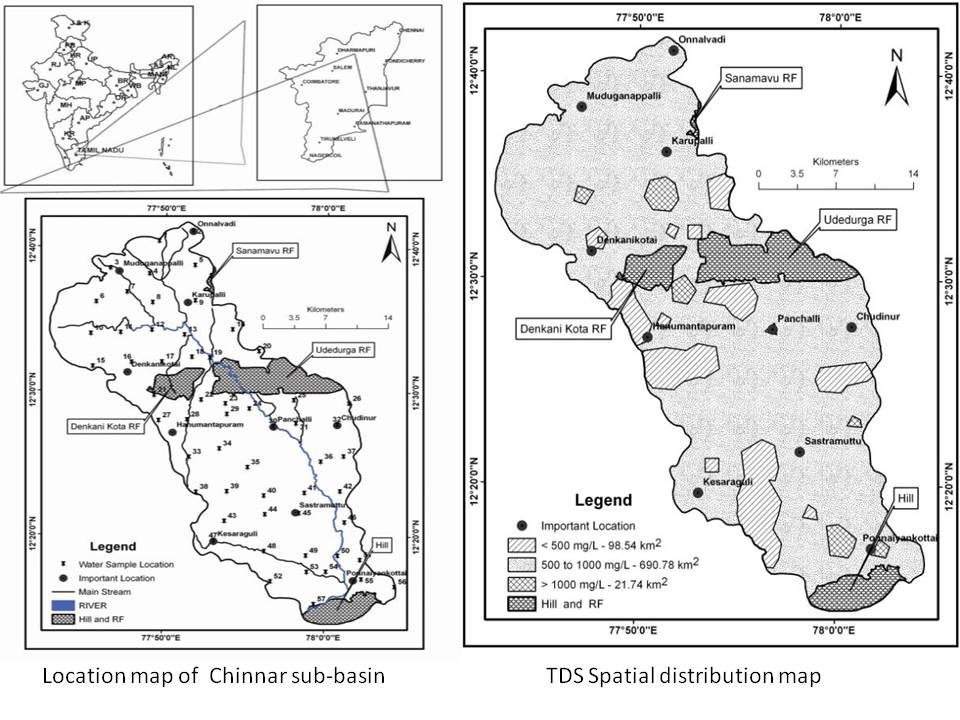/regions/physiography
Physiography
"Understanding and resolving water conflicts in the North East": Workshop held at Guwahati, 23-26 January 2012
Posted on 16 Feb, 2012 01:31 PMGuest post by: Raju Mimi
Climate change in the Hindu Kush-Himalayas -The state of current knowledge - A book by ICIMOD
Posted on 16 Feb, 2012 01:10 PMThe Hindu Kush-Himalayan region has had very few resources to develop a detail scientific understanding needed to assess climatological, environmental, and other data in the past and there is very little information upon which a baseline for comparison with the present can be formed and future impacts can be anticipated.
Adapting to climate change - Conserving rice biodiversity of the Apatani tribe in North East India - An IGREC working paper
Posted on 15 Feb, 2012 11:47 PMIt also deals with the threat to the biodiversity in the area due to climate changes and argues for the need to devise adaptation strategies at an urgent level to preserve the unique genetic variability of the region and the indigenous knowledge of farming practices in the area.
Water conservation, sustainable agriculture, challenges for rural development in Maharashtra and possible solutions - Talk by Popatrao Pawar, Sarpanch, Hivre-Bazar
Posted on 09 Feb, 2012 04:49 PMShri Popatrao Pawar is an inspiring promoter of the 'Ideal Villages Movement' on "Integrated Agriculture and Rural Development for Tomorrow's Maharashtra" on the occasion of the inauguration of Observer Research Foundation's Maharashtra@50 Study Centre on 24th June 2010.
Governing the urban poor - Riverfront development, slum resettlement and the politics of inclusion in Ahmedabad - A paper published in EPW
Posted on 08 Feb, 2012 11:58 AMSabarmati Riverfront Development (SRD) project, an urban mega-project in Ahmedabad has been proclaimed as a case based on “flexible governing” of the residents of the riverfront informal settlements.
Water quality monitoring of lakes in and around Bangalore city
Posted on 07 Feb, 2012 03:05 PMIt describes the efforts undertaken by the Karnataka State Pollution Control Board to launch a programme to monitor the water quality of some of the lakes in Bangalore so as to focus the attention of concerned governmental organisations to take up remedial measures to safe guard the water bodies of the "Garden City".
The sources of pollution in lakes are mainly identified as:
Mining poisons South Goa waters: The case of the Salaulim reservoir shown in a film
Posted on 04 Feb, 2012 05:05 PMContent and Media Courtesy: Video Volunteers
Planning as commoning - Transformation of a Bangalore lake - Paper published in the EPW
Posted on 02 Feb, 2012 11:30 AMThis paper published in the Economic and Political Weekly argues that the transformation of human settlements over time can affect the relationship between communities and commons when, for example, social geographies change from rural to urban, or from traditional systems of management to modern bureaucratic systems.
Saving some last remaining free flowing rivers
Posted on 24 Jan, 2012 06:38 AMGuest post by: Parineeta Dandekar
Evaluation of physico-chemical characteristics in groundwater using GIS – A case study of Chinnar sub-basin, Cauvery River, Tamil Nadu, India
Posted on 20 Jan, 2012 04:26 PMThe study found that the groundwater of the basin is extremely hard with total hardness, magnesium and potassium contents being above the permissible limits. Thirty nine out of 57 samples exceed the allowable limits for fluoride.
